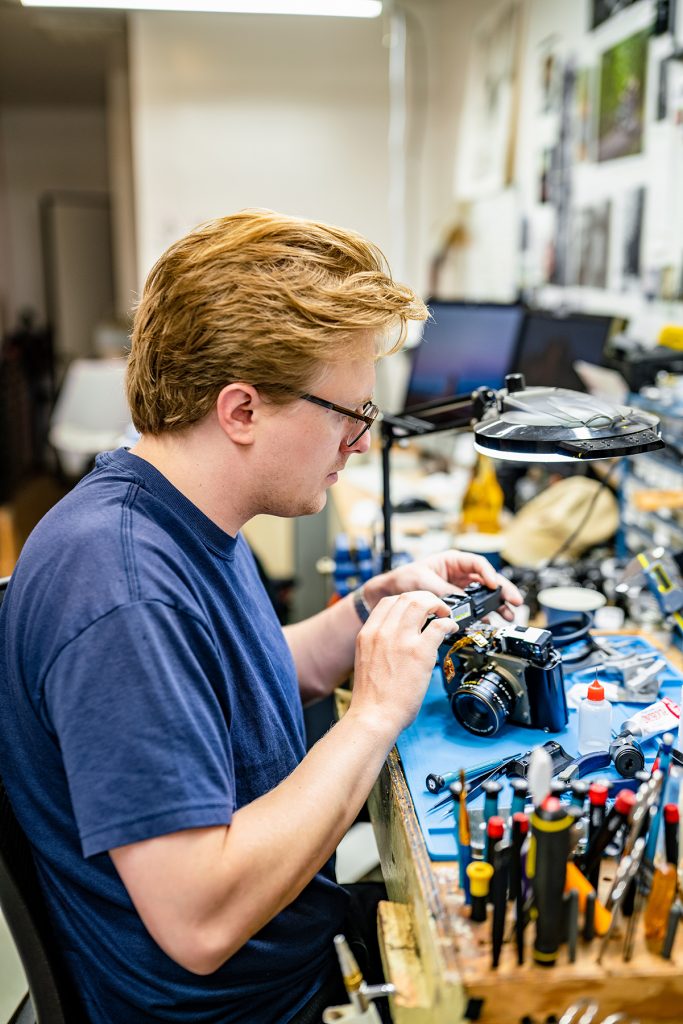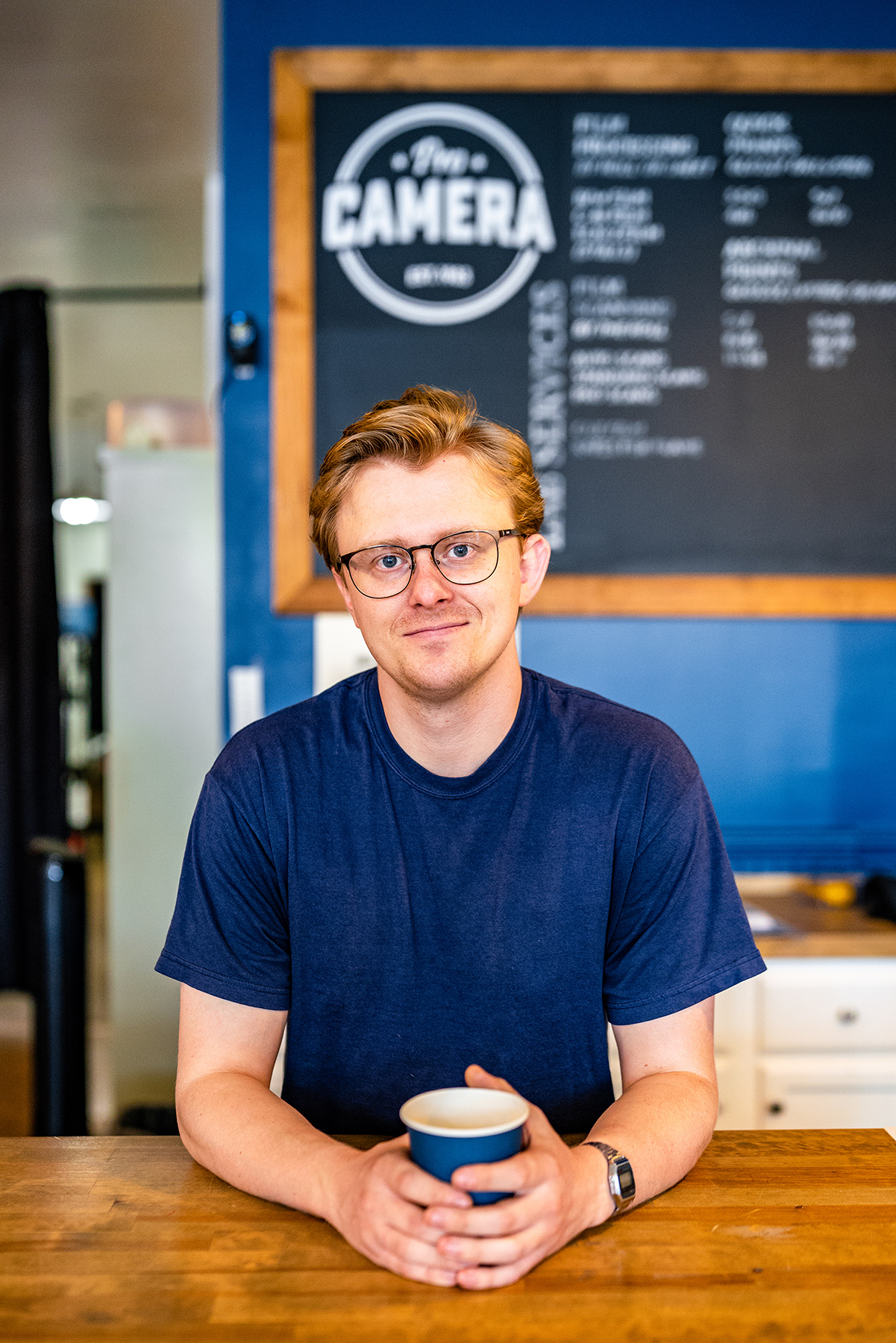Ryan Jones bought Pro Camera on West Main from Bill Moretz just a few months ago, but he’s been helping put the place in the national flashlight for several years.
Jones, who studied media and photography at the University of Virginia, has turned himself into a go-to resource for analog camera repair. He’s been entrenched in the local photography community since his uni days, but he’s never formally studied the mechanics of cameras. Moretz, a master technician, showed him the way of the shutter.
“He gave me some pointers, and I was able to step in and start learning,” Jones says. “I just took to it—kind of had the knack. I’ve taught myself a good majority of the repairs, but it is a constant learning process.”
As Pro Camera’s lead technician since 2020, Jones became an indispensable part of the team when Moretz began working from home due to COVID. Moretz decided to retire officially by the end of the year and sold the business he founded in 1983 to Edward Bricker.

About six months ago, Jones decided it was time to move on. He had a job lined up with another photo firm in Pennsylvania and was on his way out the door when Bricker crunched the numbers. If Jones left, he figured he’d lose too much repair revenue to stay out of the dark room.
He offered to sell the place to Jones, Jones accepted, and the nearly 40-year-old business was saved.
“The position we occupy in the market is unique because this is an industry that is and has been on the decline for many years,” Jones says. “And almost because of that, it has allowed us to position ourselves advantageously and capture what is left of a dying market.”
According to Jones, other camera shops the country over claim they offer repairs on old equipment but actually send the devices to Pro Camera. The out-of-town repair submissions come from Chicago, New York, California—”all over the world,” Jones says.
One of the keys to keeping the flagging hobby afloat, according to Jones, is making sure components are available to repair old cameras. As more time passes since manufacture, designs go out of production, and camera makers stop supporting their legacy products, it becomes increasingly difficult to harvest old parts from other broken down machines. Jones has taught himself rudimentary machining and metalworking and even dabbled in 3D printing to address the component supply issue.
But as smartphone cameras become better with every new product release, how can an industry like analog photography compete? Jones says it’s not about competing for the old school shutterflies—that race to the next best thing in color and resolution misses the aesthetic point for pixel purists. And for the new school, those pro-level pocket computer/cameras have their well-documented downsides.
“Film is coming back, depending on who you ask,” Jones says. “For older folks going back to it…it is an economy of nostalgia. And young folks are finding film and the way it features in their social behavior is healthier than the digital forms of media.”
Jones says he remains committed to his ties to the local film community, which he developed working on a long-term photo ethnography of the Woolen Mills neighborhood while in school. And he only hopes to strengthen those ties. He wants Pro Camera, once a somewhat sterile storefront, to be a place for pixophiles to congregate, feel comfortable, and share ideas.
Is Charlottesville the next big not-so-point-and-click hot spot? Hard to say. Still, Jones says he’s just getting started.
“We have a lot of different goals,” he says. “The first is the marathon of manufacturing and continuing to learn how to keep these cameras circulating. But we also want Pro Camera to be approachable. …If you’re entering the store, we would love to sell you something, but we also want you to share your thoughts and share the space.”
